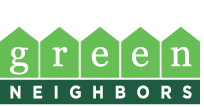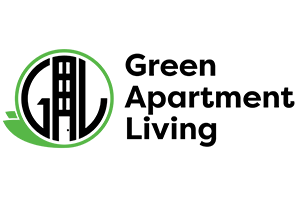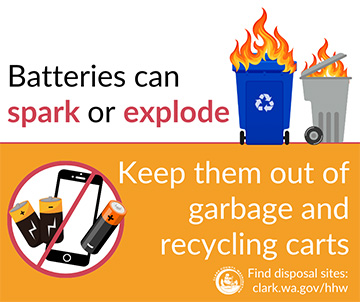We have resources to save you time, money, and a lot of hassle. Maintaining your property’s recycling and garbage systems, as well as educating residents on how to properly utilize them, is important for providing your tenants with a clean and green living environment.
Are you a resident in an apartment complex who is interested in recycling? Learn more
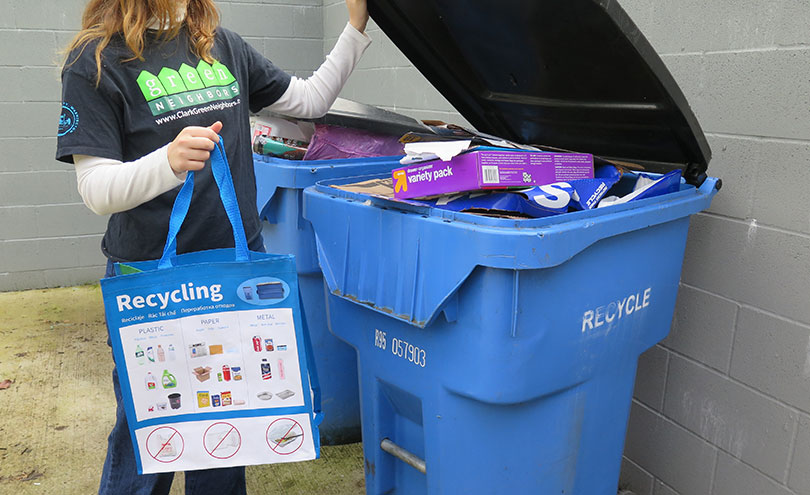
-
Changing your garbage and/or recycling services
Need more or fewer pickups?
- Request changes to your account by contacting Waste Connections.
- Fill out a contact request form on their website.
Mailing/Site address:
12115 NE 99th Street
Suite 1830
Vancouver, WA 98682Phone: 360.892.5370
E-mail: customerservice2010@wcnx.orgMy recycling containers are frequently overflowing
You may need more containers or more frequent collection. Having the proper amount of space and number of collections is important for keeping your complex clean and organized. The Container Volume Calculator document will assist you in determining the required volumes for garbage, recycling, and glass containers specific to your apartment complex.
Request on-site assistance
Professionals will review your current service levels at no charge and suggest the appropriate changes for improvements in amount of containers, pick-up frequency, enclosure improvements, and cost savings.
Staff training
Free training sessions for your staff are available to help troubleshoot garbage and recycling concerns quickly
-
FREE apartment recycling materials
Tote bags, signs and decals are provided by your regional Solid Waste partners at no additional cost. To request any of the following items fill out a Request for Supplies form.
Resident Recycle Bags:
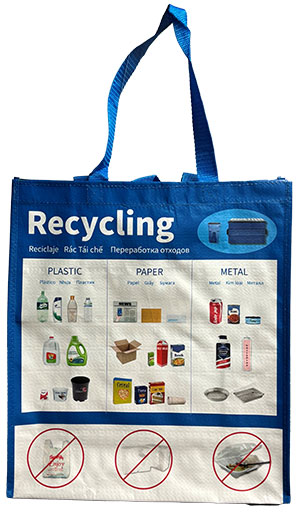
Property Signage:
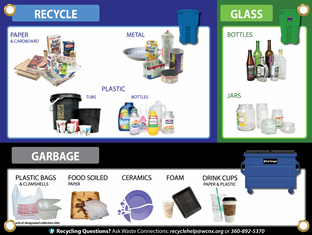
Decals:
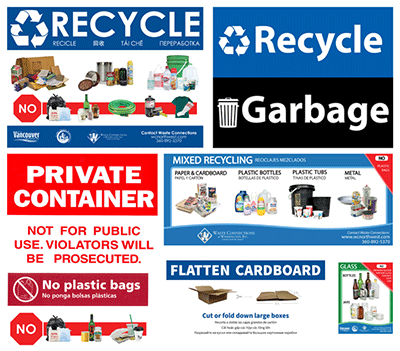
Printable recycle guide for residents
This recycle guide is free to download, or hard copies can be requested for free by contacting Waste Connections. These are a great resource to handout to new or existing residents. Give residents hard copies or attach a digital copy to an online newsletter.
Printable Multi-Family Recycle Guide (available in English, Spanish, Russian and Vietnamese)
-
Battery disposal
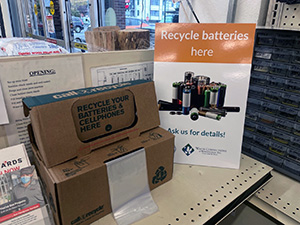 Did you know that the majority of the fires at the transfer stations in Clark County are started because of batteries? You never want to toss batteries in the trash or recycling, even dead batteries, because they can start fires. Luckily, we have a great solution for you and your residents!
Did you know that the majority of the fires at the transfer stations in Clark County are started because of batteries? You never want to toss batteries in the trash or recycling, even dead batteries, because they can start fires. Luckily, we have a great solution for you and your residents!- Provide safe and free battery collection by becoming a Clark County Battery Drop-Off host site: There is no cost to participate, the program is funded by Waste Connections.
- Battery recycling kits come with pre-paid shipping labels for easy pick-up once the kits are full.
- Clark County staff will provide free training and resources to keep battery collections safe.
The goal is to make battery recycling more accessible without being a burden on host sites. Contact solidwaste@clark.wa.gov for more information!
-
We Compost
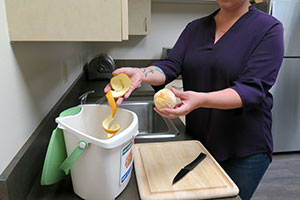 Join the new Clark County We Compost program and your multifamily complex may be able to qualify for FREE food waste collection service! Clark County has partnered with Waste Connections to reduce the amount of food waste heading to the landfill. Learn more about the We Compost program.
Join the new Clark County We Compost program and your multifamily complex may be able to qualify for FREE food waste collection service! Clark County has partnered with Waste Connections to reduce the amount of food waste heading to the landfill. Learn more about the We Compost program. All residents at your facility will qualify to receive a free compost pail. Our staff will schedule workshop training sessions and provide education to residents by staffing an educational table at your facility. Please email solidwaste@clark.wa.gov for more information!
-
Bulky item disposal
Bulky items may occasionally need to be disposed of by residents. This is particularly common during move-in and move-out. Bulky items are generally defined as any item that is too large to fit in your garbage or recycling containers. Common items include furniture, appliances, and automobile tires. Advise your residents not to dump these items in your service area to avoid disruption to your regular services. Instead, recommend these options for bulky item disposal:
- Donate for reuse: Donate unwanted bulky items that are still in good condition to thrift or reuse stores. A comprehensive list of local stores that accept bulky items for donation can be found by searching the Recycle A-Z directory, using the key word “Bulky items”.
- Request bulky item pick-up from Waste Connections. Request services and receive a price quote by filling out the online form.
- Drop-off bulky items at any of the three transfer stations in Clark County. For information on your local facility visit the Columbia Resource Company website. Electronics and recyclable materials can be dropped off at no charge.

